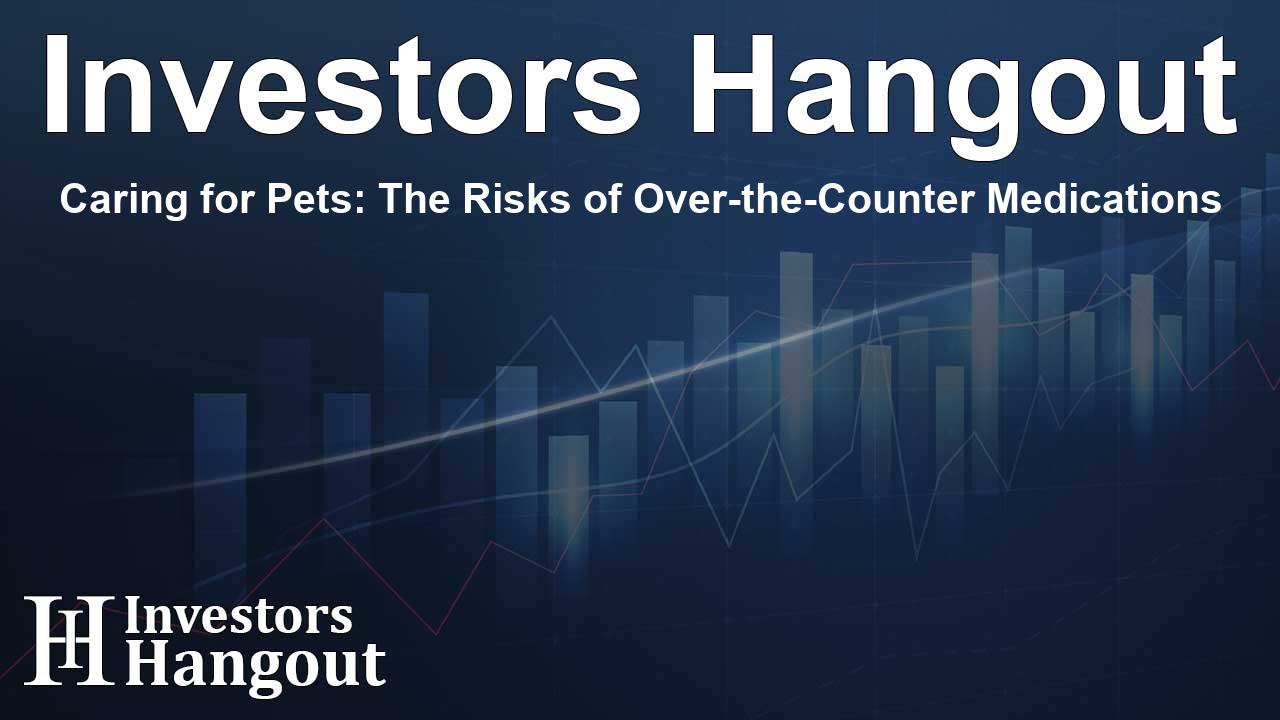Caring for Pets: The Risks of Over-the-Counter Medications

A Cautionary Tale About Pet Safety
In a heartwarming yet cautionary tale, a dog named Dolly Parton found herself in a precarious situation after ingesting a potentially harmful pill. This incident underscores the importance of pet owners being aware of the dangers posed by everyday medications, even those considered safe for humans.
The Incident: Dolly's Dangerous Snack
Dolly, a spirited West Highland White Terrier, is known for her curious nature and her enthusiasm when it comes to food. Her owner, Mary Jo Coltin, shared that during a brief moment of inattention, a dropped vitamin D pill was quickly consumed by her furry companion before she could intervene. Fortunately, after contacting the Pet Poison Helpline, Coltin was reassured that Dolly was safe and didn’t require immediate veterinary intervention.
The Importance of Quick Action
This event serves as a reminder of the critical role pet owners play in ensuring their pets' safety. Promptly recognizing potential hazards and seeking expert advice is vital in these situations. The swift response from the Pet Poison Helpline provided peace of mind for Coltin, highlighting the invaluable support of veterinary toxicology professionals.
Expert Insights on Pet Health
Dr. Renee Schmid, a senior veterinary toxicologist, emphasized the unique way pets metabolize medications compared to humans. While many individuals might assume the safety of over-the-counter medications, the truth is that even common household items can be hazardous to pets. Given the size difference between humans and pets, a single overdose can lead to severe consequences.
A Broader Issue of Pet Safety
In addition to Dolly's case, the Pet Poison Helpline reported numerous similar cases where pets gained access to medications. For example, a two-year-old terrier from Texas mistakenly ingested thirty vitamin D soft capsules. This prompted significant health issues, requiring extensive treatment and recovery.
Understanding the Dangers of Human Medications
Many pet owners remain unaware of the risks associated with vitamins and supplements. Dr. Schmid notes that, had Tucker’s owner acted promptly, they could have prevented the severe health issues that arose due to the delay in treatment. The dangerous effects of vitamin D include symptoms such as vomiting, nausea, and impaired kidney function, lasting long after the initial treatment.
It is crucial for pet parents to keep all medications out of reach, making it a priority to educate themselves on safe storage practices. Vigilance can significantly reduce the risk of an accidental ingestion by pets or children.
Educational Initiatives and Resources
Through initiatives like Toxin Tails, the Pet Poison Helpline aims to educate both the public and veterinary community on the risks of poisoning due to pet exposure to various substances. Many pets featured in this initiative have successfully recovered from their poisonings, providing a valuable resource for understanding the dangers posed by seemingly harmless items.
Pet Poison Helpline: A Lifeline for Pet Owners
Pet Poison Helpline operates around the clock, offering advice and support to pet owners during emergencies. With a nominal fee, this service provides critical consultations and follow-up throughout a case. Their expertise spans all animal species, ensuring effective help regardless of the situation.
Frequently Asked Questions
What should I do if my pet ingests medication?
If your pet ingests any medication, immediately contact a veterinary professional or a poison control helpline for guidance.
Are over-the-counter medications safe for pets?
Not all over-the-counter medications are safe for pets; always consult your veterinarian before administering any medication.
How can I prevent my pet from ingesting harmful substances?
Keep all medications, including vitamins and supplements, out of your pet's reach and ensure they are stored securely.
What are the symptoms of poisoning in pets?
Symptoms can include vomiting, diarrhea, lethargy, and unusual behavior. If you notice any of these signs, seek immediate veterinary care.
Where can I learn more about pet safety?
Resources like the Pet Poison Helpline and veterinary professionals can provide comprehensive information regarding pet safety and wellness.
About The Author
Contact Logan Wright privately here. Or send an email with ATTN: Logan Wright as the subject to contact@investorshangout.com.
About Investors Hangout
Investors Hangout is a leading online stock forum for financial discussion and learning, offering a wide range of free tools and resources. It draws in traders of all levels, who exchange market knowledge, investigate trading tactics, and keep an eye on industry developments in real time. Featuring financial articles, stock message boards, quotes, charts, company profiles, and live news updates. Through cooperative learning and a wealth of informational resources, it helps users from novices creating their first portfolios to experts honing their techniques. Join Investors Hangout today: https://investorshangout.com/
The content of this article is based on factual, publicly available information and does not represent legal, financial, or investment advice. Investors Hangout does not offer financial advice, and the author is not a licensed financial advisor. Consult a qualified advisor before making any financial or investment decisions based on this article. This article should not be considered advice to purchase, sell, or hold any securities or other investments. If any of the material provided here is inaccurate, please contact us for corrections.
